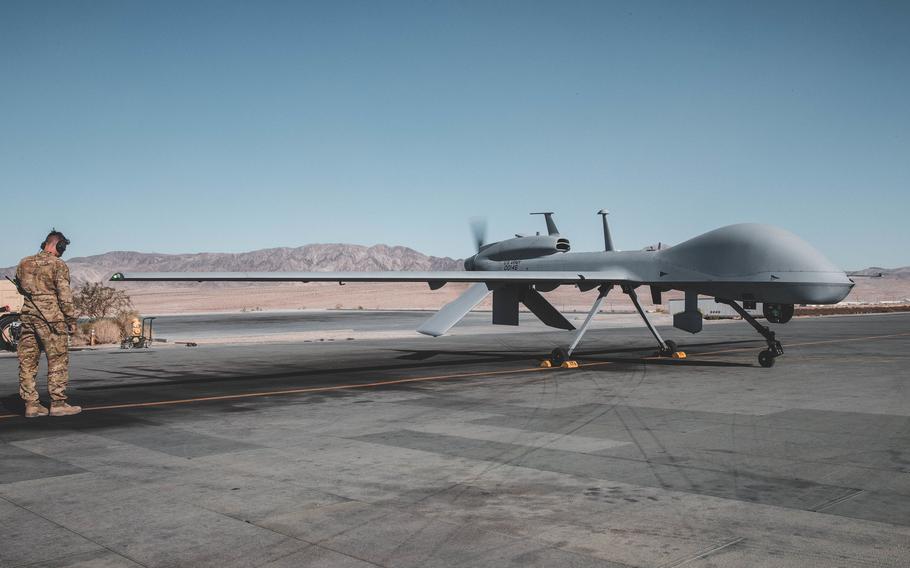
An Army MQ-1C goes through preflight checks at Twentynine Palms, Calif., in November 2019. An MQ-1C flying over southern Somalia crashed to the ground earlier this week, U.S. Africa Command said Nov. 8, 2024. (William Chockey/U.S. Marine Corps)
STUTTGART, Germany — A U.S. drone flying earlier this week over southern Somalia, where the American military routinely conducts surveillance operations, crashed to the ground, U.S. Africa Command said Friday.
An investigation has been launched to determine why the U.S. Army-operated MQ-1C Gray Eagle went down Tuesday, AFRICOM said. The crash, however, does not appear to be the result of any attempt to shoot down the aircraft, the Stuttgart-based command said.
The Gray Eagle, a derivative of the Predator unmanned aircraft, is used for both surveillance and strikes. It can operate at up to 29,000 feet and is capable of carrying four Hellfire missiles, according to contractor General Atomics.
AFRICOM troops have been in Somalia on a regular basis for many years to help local forces involved in a decadeslong struggle against the Islamic militant group al-Shabab.
In addition to training and advising local troops, U.S. forces carry out surveillance missions and conduct airstrikes against enemy targets in coordination with the Somali government.
Over the past couple of years, the number of U.S. drone strikes in Somalia has dropped dramatically. In 2020, AFRICOM conducted a record 63 strikes in the country. This year less than 10 strikes have occurred, according to AFRICOM data.